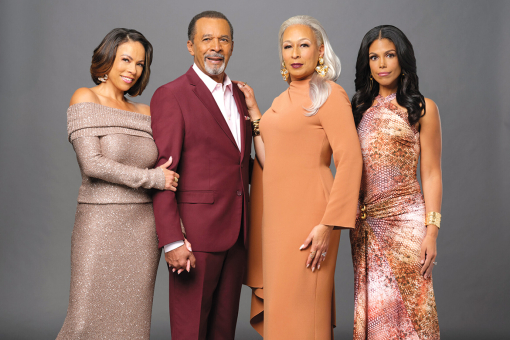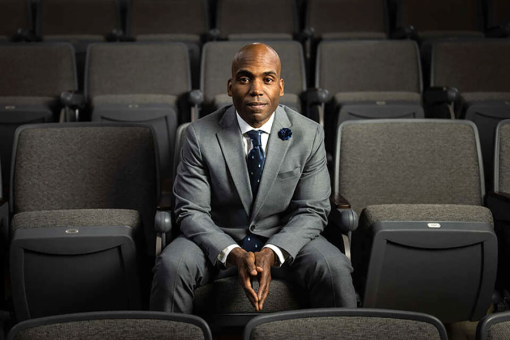In her home office, Cameo George, the newest executive producer of PBS's American Experience, sits surrounded by history books. Stacks and stacks of them. On the floor. On her desk. Cramming the shelves.
Atop one pile is The Eagles of Heart Mountain, about young men who formed an extraordinary high school football team in a World War II Japanese internment camp in Wyoming. Beneath it lies Soul City, the true tale of a civil rights activist who tried to build a Black-run city on a former slave plantation. Next down is Lady Romeo, the biography of a nineteenth-century queer actress whose worldwide fame faded into obscurity.
"For me, stories that tell us how we got here are magic," George says. "Those stories that we should have learned in the classroom, but didn't get to."
This season includes The American Diplomat, which chronicles how three African-American men shattered racial barriers to become ambassadors in the Foreign Service while facing discrimination at home. Flood in the Desert recounts the collapse of Southern California's St. Francis Dam, which killed more than 400 people in 1928. "It's about the water wars. It's about climate change," George says.
Plague at the Golden Gate resurrects a dicey moment in 1900 when bubonic plague almost seized a foothold in San Francisco's Chinatown. "The parallels to Covid are eerie and mind-boggling," she says.
When hired two years ago as the first Black woman in this position, George, an Emmy Award–winning producer who had been head of development for longform projects at ABC News, set two major goals for herself. One was to diversify the population of documentarians. The other was to encourage innovation in how those filmmakers tell their stories, to rely less on such formulaic devices as "the slow pan and sonorous music" and to infuse the narratives with a broader range of perspectives.
"I want history to feel present and to feel urgent to people," she says.
Riveted: The History of Jeans, for instance, which premiered February 7, traces denim's history back centuries and up to the present. Many will be surprised to learn that the blue pigment can come from a green plant — and that people enslaved in America were forced to produce the material for export. Mixed in with traditional historians are younger savants, including master weavers and academics from the Fashion Institute of America, all set to a contemporary jazz and blues score.
George, who previously produced, developed and commissioned innovative programming for NBC, CNN, Ozy Media and others, recognized early on that TV programming had room for more inclusive storytelling. "History belongs to all of us," she says. "We should all be a part of the telling and interpretation of it."
Catch-up viewing of American Experience is available at pbs.org and on PBS Passport.
This article originally appeared in emmy magazine, issue #1, 2022, under the title, "Past Is Present."
More articles celebrating Black History Month.













